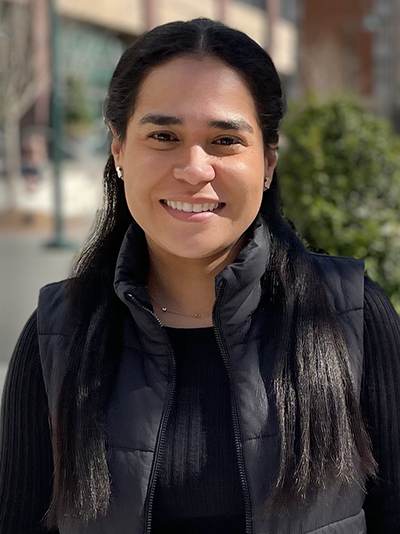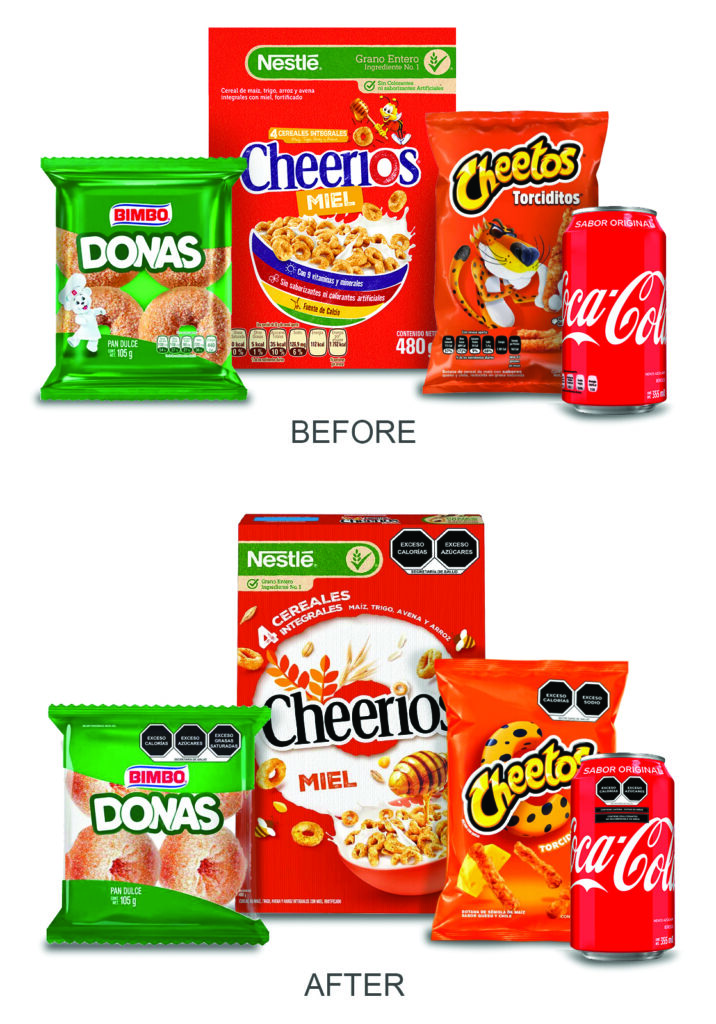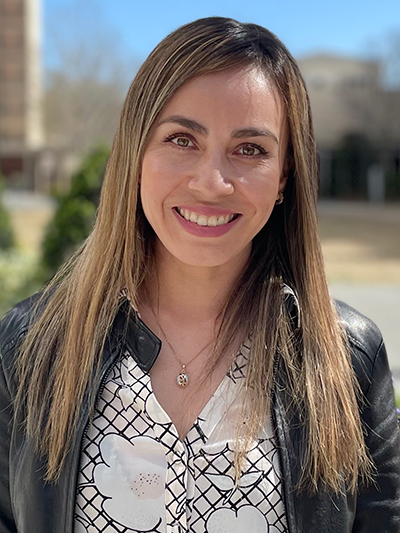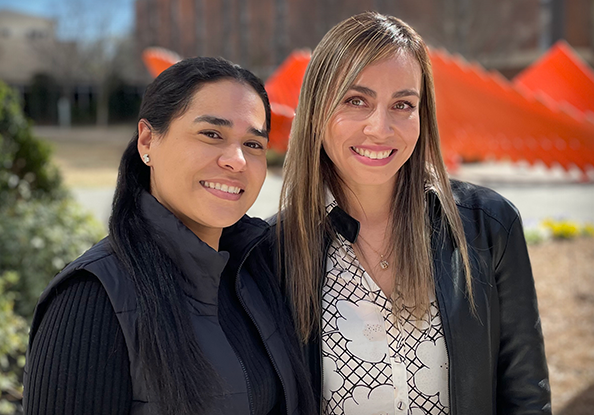The opportunity to make a broad impact on food policy is what drives both Claudia Nieto and Gabriela García, two PhD students from Mexico who are visiting scholars at UNC-Chapel Hill’s Global Food Research Program (GFRP) this year. Both Claudia and Gabriela are students at GFRP’s research partner National Institute of Public Health (INSP, Instituto Nacional de Salud Pública) in Mexico, where reducing high obesity rates among children is a priority.

Claudia, a Vital Strategies Healthy Food Policy Fellow, researches how digital food marketing affects children. She can recall how she, herself, was influenced by marketing growing up — specifically as a Hello Kitty fan. She recalls asking her mother to take her to McDonald’s so she could collect the Hello Kitty figures that came with the Happy Meal.
“I don’t think I finished the food, but I needed to get all of the figures,” says Claudia. “Marketing has the power to influence so much of children’s behavior and what they want to eat. Even children in preschool can remember logos and say the name of the brand.”

Courtesy of Simón Barquera.
Claudia sees an opportunity to address health challenges with policy. In 2021, the Mexican government banned cartoon characters from the front of any food packages that have warning labels for high calorie, sugar, saturated fat, trans fat, or sodium content. Claudia would like to see that ban and other restrictions on marketing placement or tactics extended to include both digital marketing and an expansive time frame on television.
Currently, Mexico has minimal restrictions on advertising unhealthy foods during child-directed broadcasting (in TV and cinema). “If advertisers say that a show is not intended to reach children, they can advertise unhealthy foods or beverages, but children watch other shows like soccer matches and soap operas,” explains Claudia. “It would be good to see our research lead to a broader policy.”
Like Claudia, Gabriela recalls learning about nutrition through food choices she made growing up. In her case, she says her father frightened her out of eating unhealthy food. “I wanted the colorful cereal with the animal on the front of the box. I asked my father for it, but instead he gave me the plain cereal and a bag of sugar on the side,” says Gabriela. She laughs at the memory: “He told me, ‘If you want to die, put this entire bag of sugar on the cereal!’ Of course, he scared me, and I did not put the sugar on the cereal. When I tell my friends this story, they joke that I was born to be a nutritionist.”

Gabriela, who is a Fulbright Scholar, was grateful to find nutrition as a field to study. “I realized I could help people,” she says. She recalls helping her first patient, an elderly woman in a hospital, by giving her nutrition advice. “It was such a good feeling when she said she was feeling much better because of my recommendations.” Gabriela realized if she could help one person, she could go on to help communities and even populations.
Gabriela’s research focuses on evaluating the impact of the Mexican government’s taxes on sugary drinks and non-essential foods. She wants to find out how household purchases have changed with the taxes, implemented nearly a decade ago, and how the tax increase has affected children’s weight over time. “We’ve seen an impact, but people get accustomed to change,” says Gabriela. “The best-case scenario would be to increase the tax again, if we would like to see more change.”
Both students express excitement for their time in North Carolina and with GFRP. And, of course, for the local food scene. “I see a lot of diversity in packaged food choices at the supermarket,” says Claudia. “We have different brands in Mexico, and I like comparing nutrition information of these processed foods.”
Adds Gabriela: “I’m loving our social activities as a group. People bring food to share from their cultures. It makes sense because in the end, we’re studying food and how it impacts us.”
Gabriela and Claudia will be with GFRP through June and October, respectively.

CLAUDIA’S LATEST RESEARCH
The nature and extent of food marketing on Facebook, Instagram, and YouTube posts in Mexico, Pediatric Obesity, Mar. 2023
Unhealthy Food: The Beverage Industry’s Digital Media Campaign to Stop the Approval of the Front-of- Package Labelling System in Mexico, ESR Review, Dec. 2022
GABRIELA’S LATEST RESEARCH
Dietary patterns are associated with obesity in Mexican schoolchildren, European Journal of Clinical Nutrition, Mar. 2020
Contribución de los alimentos a la ingesta total de energía en la dieta de los mexicanos mayores de cinco años (Contribution of food to the total energy intake in the diet of Mexicans older than five years), Salud Pública de Mexico, Feb. 2020